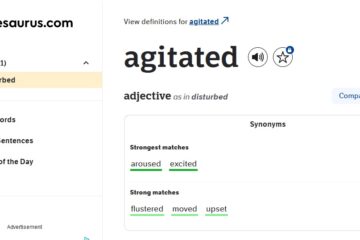
My last post, about The Great Revising Debate of 2014, discusses the question of how good the writing should be before an author publishes the book. Specifically, how many drafts should the book have gone through? How much revision does it take to create “good, publishable writing”?
The stance I best relate to is the one that says, write it as best you can. Once you have a piece that you think people would like, then publish it. Now go write some more. And publish that. Be prolific. Write thousands of words. Practice writing like doctors practice medicine. By doing it. And giving it to real, live people to read.
Don’t try to make it “perfect”. Don’t get hung up on the idea that good art somehow requires multitudes of drafts to be enjoyable, or even to be “excellent”.
Beauty is in the eye of the beholder. Or the reader, in this case.
The flip side of the quantity coin
Like so much in life, there is a tension that must be maintained between two extremes. Somewhere between “always strive for excellence” and “just get it out there” is some common sense. I hold two things firmly in mind as I approach my own art and writing:
– There is a minimum quality threshold.
I won’t say, “Don’t sell your work unless it’s of certain quality.” Just realize that if you do, you do it at your own risk.
It’s one thing for an artist to sell their sketches. After all, if someone likes the sketch enough to buy it, then both parties are happy with the sale and it’s all good. But with a sketch, you can see the entire thing before you buy. When it comes to selling e-books, you may give a sample, but the sample does not always reflect the quality of the entire work. The sample might be decent, but the ability to execute the entire story lacking.
Even bestselling authors lose readers when their endings fail to please (cough-cough, Stephen King, ahem). If you get a reputation as a sucky author, the one who loses in the long run is you. Er, not saying Stephen King is a sucky author, I love him and respect his work. Some of his endings, however… well, I know some folks who lost interest in him because of a few disappointments.
– Better is better than more. [tweetthis url=”http://ctt.ec/1d565″]
This clever turn of phrase is not my own. “Better is better than more” is from Seth Godin’s post, Not even one note. He shared about learning a musical instrument. If you can’t play even one note with clarity and beauty enough to move someone, then maybe you’re not ready to put on a concert. Either keep practicing until you can, or do it for joy and not profit, or walk away. There is honor in all three choices.
But there is no honor in sloppiness, not caring enough to work at your craft, or in disrespecting your readers by charging them for a poor product.
A balanced approach, aka the wisdom of David Mack
I’m a big fan of David Mack’s art, both in comic books and other formats. He said something earlier this year about practicing your art that summarizes the approach I like best. Some excerpts:
STEP 1: START. START NOW.
Nothing takes the place of just doing it.
STEP 2: FINISH IT. COMPLETE IT.
STEP 3: SHOW IT TO PEOPLE.
Guess what? It WON’T BE GOOD ENOUGH… And this project will give you insight on how to improve your next work.
STEP 4: REPEAT STEPS 1-3 over and over. Forever.
Like so many things, it is so simple.
Easy to say. Challenging to do. That’s life.
What step are you on? Tell me in the comments.
Until next time, live long and prosper. Go forth, and publish.




4 Comments
Teddi · at
Just noticed that Rick Copple has a post on Speculative Faith related to this. Same topic, published on the same day. Thoughts of quality must be in the air.
So check out “Quality Is As Quality Does“, too.
Jill · at
I’m currently working on a first draft. Writing is difficult. Recently, somebody gave my book a 4-star rating and said I was a “promising writer”. While I’m sure it wasn’t to be offensive, it bothered me for a long time. Nobody told me I was promising when I was 20. I was the only one who believed I was. So now, at the age of 40, I’ve finally reached the stage of “promising”. That review really killed any and all motivation I had–for a while.
Teddi · at
Ouch. Who knows what they meant by “promising”. Words can be powerful — both positive and negative.
I’m glad you’re working on a new book. I think your writing is lovely, and your ability to tell a good story very strong. The promise I see in you as a writer doesn’t have anything to do with “needing improvement” (though I believe all living writers can always get better, never settle for where you’re at). The promising part is that there are more stories in you. And even though Anna and the Dragon is beautiful, your future books hold the promise of being even better, richer, more full of you and the life you’ve lived since ‘Anna’ finished.
Yay for writing more — go, Jill, go!
Teddi · at
P.S. Actually, I’ll disagree with myself a bit. It’s just as likely that your future books will each be lovely in their own way… not “better” per se.
Yes, every artist gains in skill as time goes on, so some details of craft will improve. But calling one piece of art “better” than another is tricky, once an artist has reached a certain level of skill. Each one is unique. I have a hard time imagining that you’ll write something “better”, since I like ‘Anna’ so much. I think you’ll write something fresh and not to be compared directly with ‘Anna’.
Anyway…